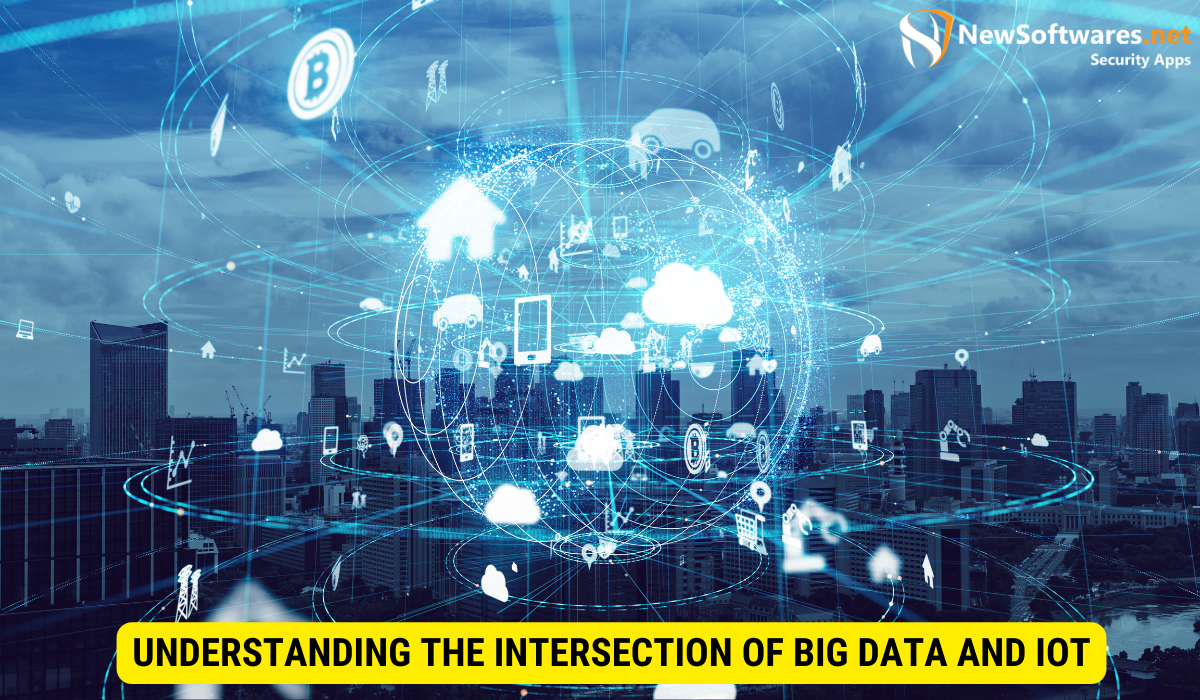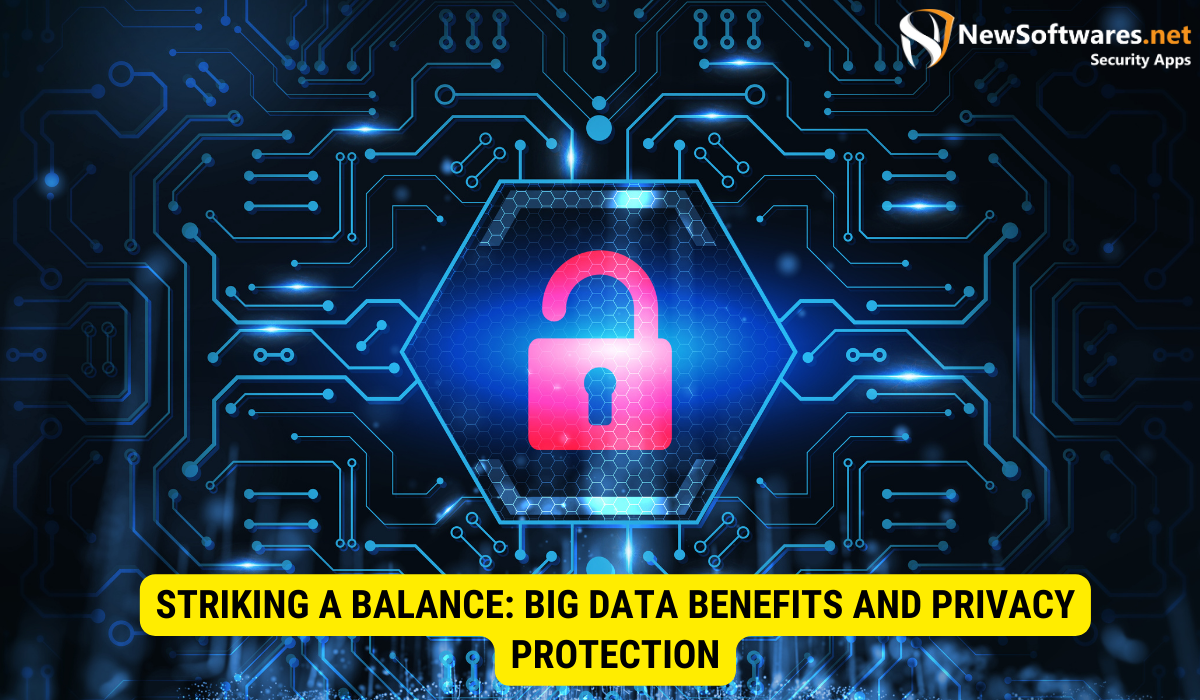Big Data and privacy play a profound role in the Internet of Things (IoT) era. The IoT’s vast data generation and interconnectedness raise privacy concerns, impacting personal security, business practices, and government policies. Striking a balance between data-driven practices and privacy protection is essential for a secure and trusted IoT ecosystem.
The rise of the Internet of Things (IoT) has brought about a new era in technology and connectivity. With an ever-increasing number of devices and sensors collecting massive amounts of data, the concept of Big Data has become intertwined with the IoT. I wil explore into the profound impact that Big Data and privacy have on the IoT era, and examine the various implications they have on society. Let’s begin by understanding the intersection of Big Data and IoT.
Understanding the Intersection of Big Data and IoT

Before we explore the impact of Big Data and privacy, it is important to define what exactly we mean by Big Data and the IoT. Big Data refers to the large and complex datasets that are generated through various sources, such as social media, sensors, and transactions. On the other hand, the IoT encompasses a network of interconnected devices that can collect, process, and exchange data.
Defining Big Data and IoT
Big Data is characterized by the 3Vs – Volume, Velocity, and Variety. Volume refers to the sheer amount of data being generated, while Velocity refers to the speed at which this data is being produced. Variety, as the name suggests, encompasses the different types of data being collected, including structured and unstructured data.
Now let’s turn our attention to the IoT. The IoT is a network of devices, vehicles, appliances, and other objects embedded with sensors, software, and connectivity. These devices can collect data and communicate with each other, creating a vast network of interconnectedness.
The Role of Big Data in IoT
Big Data plays a crucial role in enabling the IoT to function effectively. The vast amount of data collected by IoT devices provides valuable insights that can be used to optimize performance, improve efficiency, and enhance decision-making processes. By analyzing this data, organizations can gain a deeper understanding of customer behavior, predict trends, and drive innovation.
The integration of Big Data and IoT also opens up new opportunities for various industries, including healthcare, manufacturing, transportation, and agriculture. For example, in healthcare, the use of wearable devices and remote monitoring sensors allows for the collection of real-time patient data. This data can be analyzed to provide personalized treatment plans, monitor chronic conditions, and detect health issues before they become critical.
How IoT Contributes to Big Data Growth
The IoT has played a significant role in the exponential growth of Big Data. With the increasing number of IoT devices and sensors, the sheer volume of data being generated is staggering. Every interaction and activity within the IoT ecosystem generates data, and this continuous stream of information contributes to the ever-growing pool of Big Data.
Furthermore, the IoT brings with it a variety of data sources. From environmental data collected by weather sensors to social media feeds and online transactions, the IoT encompasses diverse data types. This variety fuels the growth of Big Data, providing rich and multidimensional insights that can be harnessed for various purposes.
The Privacy Concerns in the IoT Era
While the integration of Big Data and IoT presents numerous benefits, it also raises serious concerns about privacy. The nature of privacy in the digital age has changed drastically, and the IoT has accelerated this transformation. Let’s explore the various privacy issues in the IoT era.
The Nature of Privacy in the Digital Age
The advent of the digital age has brought about a new understanding of privacy. With the constant collection and analysis of data, individuals have become aware of the privacy risks associated with their digital footprint. From online behavioral tracking to data breaches, privacy has become a prominent concern in today’s interconnected world.
In the IoT era, privacy takes on a whole new dimension. The vast amount of data collected by IoT devices presents opportunities for unauthorized access and misuse. This can lead to a loss of control over personal information and an invasion of privacy.
IoT and the Erosion of Privacy
The IoT has the potential to erode privacy in various ways. Firstly, with a multitude of interconnected devices, the IoT increases the surface area for potential privacy breaches. Each device represents a potential entry point for hackers to access personal information.
Secondly, the continuous collection of data by IoT devices raises concerns about the surveillance society. From smart homes that track our movements to wearable devices that monitor our health, the IoT constantly gathers information about our daily lives. This vast amount of data can expose intimate details about individuals, leaving them vulnerable to exploitation.
Big Data’s Influence on Privacy
The integration of Big Data into the IoT ecosystem has significant implications for privacy. Big Data analytics can uncover valuable insights about individuals, including their behavior, preferences, and habits. While this can lead to personalized services and targeted advertising, it also raises concerns about the control and ownership of personal data.
In a world driven by Big Data, individuals may feel powerless and exposed. The aggregation and analysis of data can result in the creation of detailed profiles, which can then be used for various purposes, including targeted marketing, surveillance, and even employment screening. This lack of control over personal data is a major privacy concern in the IoT era.
The Impact of Big Data and Privacy on Society
The intersection of Big Data and privacy has far-reaching implications for society as a whole. Let’s explore how these issues impact personal security, business practices, and government policies.
Effects on Personal Security
With the increasing pervasiveness of the IoT, personal security becomes a paramount concern. The interconnected nature of IoT devices means that a breach in one device can lead to a cascading effect, compromising the security of the entire IoT ecosystem.
Add to that the potential for hackers to access personal data and the risks become even more pronounced. From identity theft to unauthorized surveillance, individuals face a myriad of security threats in the IoT era. This raises the urgent need for robust security measures to protect personal information.
Implications for Business Practices
Big Data and privacy also have profound implications for businesses. The collection and analysis of data can provide valuable insights that drive innovation, enhance customer experience, and boost operational efficiency. However, businesses must strike a balance between data-driven practices and privacy protection.
Privacy breaches can not only damage a company’s reputation but also lead to legal repercussions. As such, organizations must prioritize privacy and implement robust safeguards to protect customer data. By doing so, businesses can foster trust, build customer loyalty, and ensure long-term success.
Influence on Government Policies and Regulations
The intersection of Big Data and privacy has prompted governments to address the regulatory gaps in data protection. With the growing concerns surrounding privacy, governments worldwide are enacting legislation to safeguard personal information.
These regulations aim to ensure transparency, accountability, and consent in data practices. Companies that fail to comply with these regulations may face heavy fines and damage their reputation. As such, organizations must stay abreast of evolving policies and implement measures to ensure compliance.
Striking a Balance: Big Data Benefits and Privacy Protection

While the challenges presented by Big Data and privacy are significant, there are ways to strike a balance between reaping the benefits of Big Data and protecting privacy. Let’s explore the need for a balanced approach and potential solutions for privacy protection.
The Need for a Balanced Approach
To fully harness the potential of Big Data while safeguarding privacy, organizations must adopt a balanced approach. This entails implementing privacy by design principles, ensuring data minimization, and obtaining informed consent from individuals.
Additionally, organizations must implement robust security measures and regular audits to identify and mitigate privacy risks. By incorporating privacy into every aspect of data collection and analysis, organizations can build trust, enhance customer loyalty, and foster innovation.
Potential Solutions for Privacy Protection
There are several potential solutions that can help protect privacy in the IoT era. One such solution is encryption. Encrypting data ensures that it remains secure, even if it falls into the wrong hands. By encrypting data at rest and in transit, organizations can mitigate the risk of unauthorized access.
Another solution is data anonymization. By removing personally identifiable information from datasets, organizations can protect privacy while still reaping the benefits of Big Data analytics. This allows for the analysis of large datasets without compromising personal privacy.
The Future of Big Data and Privacy in IoT
As technology continues to advance, the future of Big Data and privacy in the IoT era holds immense potential. Organizations must continue to innovate and find new ways to strike a balance between data-driven practices and privacy protection.
Furthermore, individuals must be empowered with the knowledge and tools to protect their privacy. This includes educating individuals on their rights, the risks associated with their data, and the steps they can take to safeguard their personal information.
Key Takeaways
- The intersection of Big Data and the IoT has significant implications for society.
- The integration of Big Data and the IoT enables organizations to gain valuable insights and drive innovation.
- Privacy concerns in the IoT era include unauthorized access, surveillance, and the loss of control over personal information.
- Big Data analytics can create detailed profiles, leading to targeted marketing and potential privacy breaches.
- A balanced approach to Big Data and privacy is crucial for organizations and governments.
Frequently Asked Questions (FAQs)
What is Big Data in the context of the IoT?
Big Data refers to the large and complex datasets generated through various sources, such as sensors, social media, and transactions. In the context of the IoT, Big Data encompasses the data collected by interconnected devices and sensors.
How does the IoT contribute to the growth of Big Data?
The IoT contributes to the growth of Big Data by generating vast amounts of data through interconnected devices. Each interaction within the IoT ecosystem adds to the volume, velocity, and variety of data, fueling the expansion of Big Data.
What are the privacy concerns in the IoT era?
The privacy concerns in the IoT era include unauthorized access to personal data, surveillance, and the potential loss of control over personal information. The continuous collection of data by IoT devices raises concerns about the erosion of privacy.
What impact does Big Data and privacy have on society?
Big Data and privacy have far-reaching implications for society. They impact personal security, business practices, and government policies. The interconnected nature of the IoT raises concerns about personal security, and organizations must strike a balance between data-driven practices and privacy protection.
How can organizations protect privacy in the IoT era?
Organizations can protect privacy in the IoT era by implementing privacy by design principles, incorporating robust security measures, obtaining informed consent, and encrypting sensitive data. Data anonymization is another effective method for protecting privacy in Big Data analytics.
Conclusion
In conclusion, Big Data and privacy are inextricably linked in the IoT era. While Big Data brings tremendous opportunities for innovation and growth, it also raises serious concerns about privacy. The continuous collection and analysis of data have transformed the nature of privacy in the digital age, and the IoT has exacerbated these concerns. It is crucial for organizations, individuals, and governments to find a balance between reaping the benefits of Big Data and protecting privacy. By implementing robust privacy measures and adhering to ethical data practices, we can navigate the complex landscape of Big Data and privacy, ensuring a secure and trusted IoT ecosystem for all.
